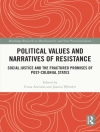While some qualitative methods texts touch upon online communities as a potential data source, show how to conduct interviews and focus groups online, or select recording devices and analysis software, no book to date has guided readers in the creation of a comprehensive digital workflow for their research. By working through each chapter in this book, readers will be able to generate a unique digital workflow for designing and implementing their research. The book provides a deep exploration of the relationship between theories of technology, substantive theories, and methodological theory, and shows how together these inform the development of a quality research design. The authors include vignettes—narratives written by qualitative researchers describing cutting-edge use of digital tools and spaces—and also give examples of published studies, which together provide practical illustration of the content. Woven throughout is explicit attention to ethical challenges that are likely to be faced by researchers when adopting digital tools. The book invites readers to engage in a critical appraisal of the role of technology in qualitative research through reflection, conversation, and engagement with the larger community of researchers.
Inhaltsverzeichnis
Chapter 1: Introduction to Doing Qualitative Research in a Digital World
Chapter 2: Qualitative Research Design in a Digital World
Chapter 3: Integrating Qualitative Data Analysis Software Across the Research Process
Chapter 4: Creating a Paperless Literature Review Process
Chapter 5: Generating Data from Pre-Existing (Digital) Spaces
Chapter 6: Generating Data with Researcher-Use Of (Digital) Tools
Chapter 7: Transcribing Innovations
Chapter 8: Managing and Analyzing Data
Chapter 9: Writing and Representing Findings to Become Public Scholars
Chapter 10: Concluding Thoughts on Doing Qualitative Research in a Chaotic World
Über den Autor
Jessica Lester is a Professor of Inquiry Methodology in the School of Education at Indiana University, Bloomington. Having been trained in cultural studies and qualitative research methodology, she takes an interdisciplinary approach to her scholarship, including both the methodological and substantive foci of her research program. In her methodological work, Lester focuses on the study of language-based methods, digital tools in qualitative research, and disability in qualitative inquiry. Her substantive research has focused on examining interactional practices in clinical and educational contexts that involve children and youth. Lester has received numerous awards for her scholarship, among them the 2014 AERA Division D Early Career Award in Measurement and Research Methodology, the 2018 APA Distinguished Early Career Contributions in Qualitative Inquiry Award, and the 2022 American Educational Studies Association Critics’ Choice Book Award. At Indiana University, Lester teaches qualitative methods courses and was recently recognized by the 2022 Gorman Distinguished Teaching Award.












